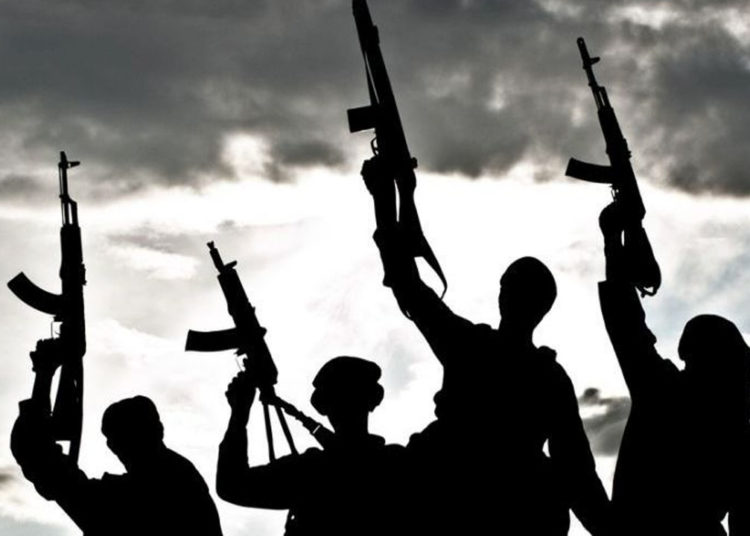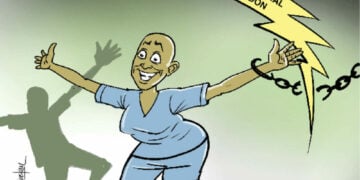Kaduna State Governor, Malam Nasiru Ahmed El-Rufai, consistently looks up to President Muhammad Buhari for guidance, support and protection. A lot of revelations have shown that the governor unhesitatingly raises alarm, forewarns against dangers and provides recommendations towards the resolution of one kind of crisis or another.
The messages he has, so far, confidentially sent to the president, especially those on the rising insecurity in Kaduna State and other places, but which were leaked and widely reported have been indications of either his concern over the unfortunate situation or tendency for grandstanding. In every of his messages to the President, El-Rufai gave a picture of the problem, foretold its effects and stressed the need for a rapid response.
In his last message which, as usual, was passed to the President in a letter, he specifically raised alarm over the attempt or, more precisely, resolve of the terrorists in Kaduna State to form a parallel government or something that looks like it. He narrated a long story about the steps being taken by criminals to have a government of their own and to which all other citizens must have to defer.
By his action, Governor El-Rufai strongly confirmed the earlier stories that in some parts of the state violent criminals have not only settled but have also taken over the control of such places from the established authorities, which means that they have constituted themselves into a government. They use brute force as an instrument of control and have even begun to impose taxes on the residents and regulate activities in the communities.
Moreover, certain groups of the terrorists like the so-called Ansar-udeen have since been reported to have commenced the spread of their strange beliefs to the members of the local communities in their bid to set up a strong and large machinery of governance that can be a substitute of the existing authorities. In some places in, particularly, Birnin Gwari Local Government Area, the locals have begun to accept and internalize the presence of the new rulers and all the other associated realities.
Well, it is good and even encouraging that the Kaduna State Governor has cried out, even though the Southern Kaduna Peoples Union (SOKAPU), in its swift reaction, described it as a belated action. All the other lesser voices that have consistently been complaining about the problem must have been re-enforced by the governor’s outcry.
The take-over of spaces, dehumanization of the people and sack of communities as well as, like in the case of Ansar-udeen, quick indoctrination of the natives are terrorists’ usual style. These are common experiences in all the states where such criminalities have already taken root.
In, for example, such North-Western States as Katsina, Zamfara, Sokoto and Kebbi as well as Niger in the North-Central, terrorists have set up settlements of varying sizes which have unfortunately continued to attract the recognition of the people. The inability of the government at state and national levels to avert such occurrences through both the application of force and the proper engagement of the local communities in such a way that their full participation in the maintenance of security can always be facilitated has eased the process of the establishment of a parallel government.
Leaders of criminal gangs like Bello Turji, Dogo Gide and Bello Alero have evidently become unrivalled authorities to which a lot of communities in Katsina-Zamfara-Sokoto axis have openly surrendered. It clearly looks like the government has already ceded some vast areas in those states to the bandits whose supremacy over the political, traditional and even religious leaders is indisputable.
President Buhari to whom Governor El-Rufai constantly reports matters of utmost concern is supposedly aware of every happening or situation in the country and is therefore always fully expected to be quite mindful of the consequences of every action or inaction of the government. Nobody conversant with the capacity of the government for both the generation of intelligence reports and adoption of measures for the control of a challenging situation will swallow the argument that the president, prior to the El-Rufai’s wake-up call, had not been aware of the on-going effort of the terrorists to establish their own settlements or completely take over existing communities.
After all, the reports that locals in the affected areas, as victims and targets of terror acts, must always have to pay for a permission of the bandits and kidnappers before they can either attend to their farms, patronize markets or embark on journeys are all over the place. Some other equally or even more devastating reports that there are criminal gangs’ leaders who have expediently been integrated into the traditional leadership structure in the communities are also available.
The complete picture of the situation shows that a lot of community leaders and members have forcefully been made to indulge in an act of collaboration with the terrorists as a solid guarantee for the safety of their lives. They have transferred their hope for protection from the constituted authorities to the leadership of the terror gangs, which is a clear acceptance of a parallel government.
Although a lot of patriotic citizens are struggling to keep their faith in the country, certain admissions of failure by the government have already re-enforced the fear that the terrorists are operating from a position that is stronger than government’s. The recent revelation by one of President Buhari’s Spokespersons, Garba Shehu, that the abductors of the Abuja-Kaduna train passengers reneged on their promise to release the abductees, even after the government firmly upheld its commitments which included the release of the wife of one of them, is totally supportive of the view that the government has somehow submitted to the terrorists.
El-Rufai, whose both position as a state governor and closeness to the president have made some people to see him as part of the problem, is not a false alarmist as such. Almost all his complaints about insecurity in Kaduna State and some other parts of the North are valid enough to necessitate drastic actions by the government.
The fear of the possibility or even real formation of a parallel government by the terrorists, especially now that the country speedily nears general election, is absolutely genuine. The rise of terror acts that results in a huge loss of human lives as one of the processes of the establishment of a government other those elected by the citizens is a real source of fear.
The emerging facts about the determination of the terrorists to come up with a structure that can substitute constituted authorities in their areas of operations continuously suggest that they are in competition with the government which is presently working towards the conduct of elections that will produce next set of leaders. They are facts that are terribly traumatizing and to which, therefore, the government should pay much greater attention.





